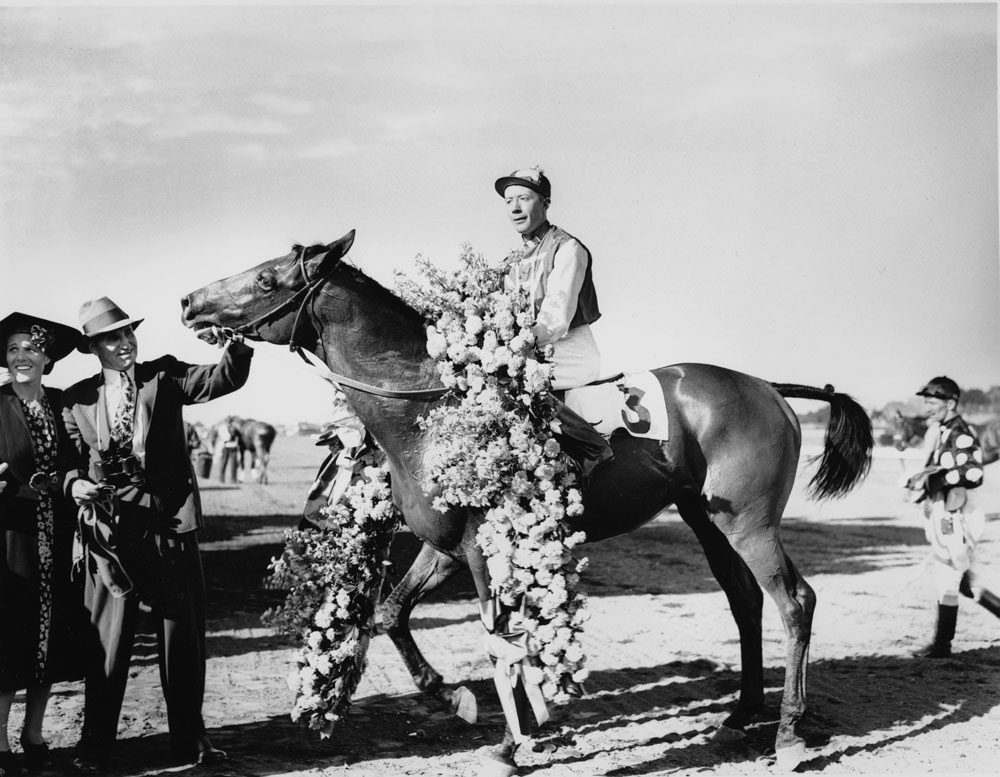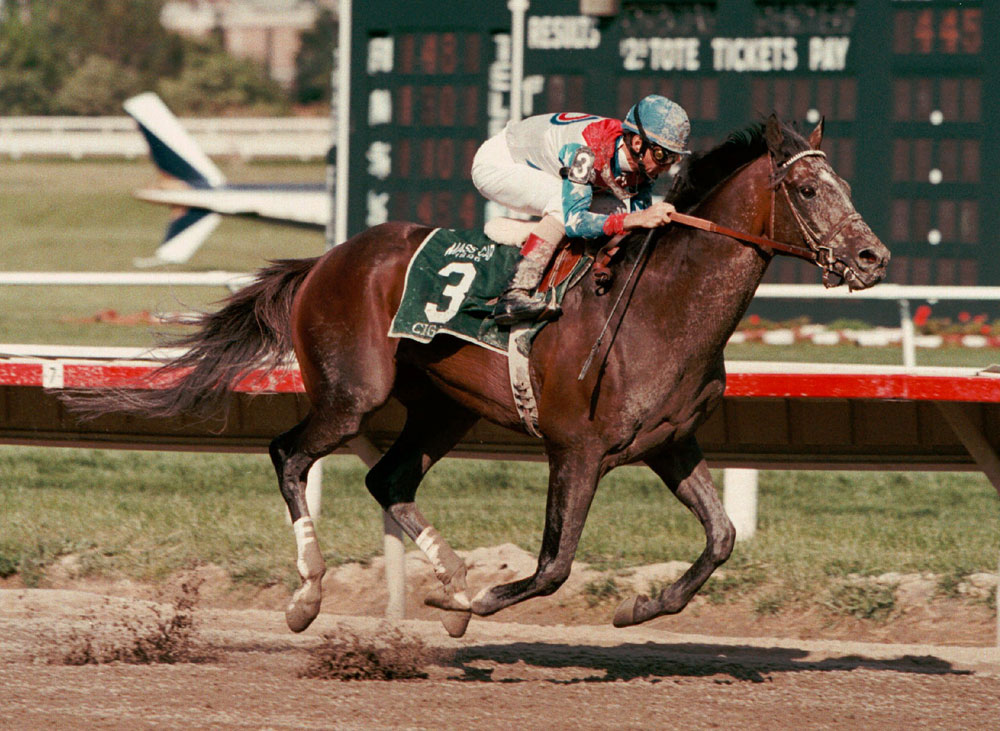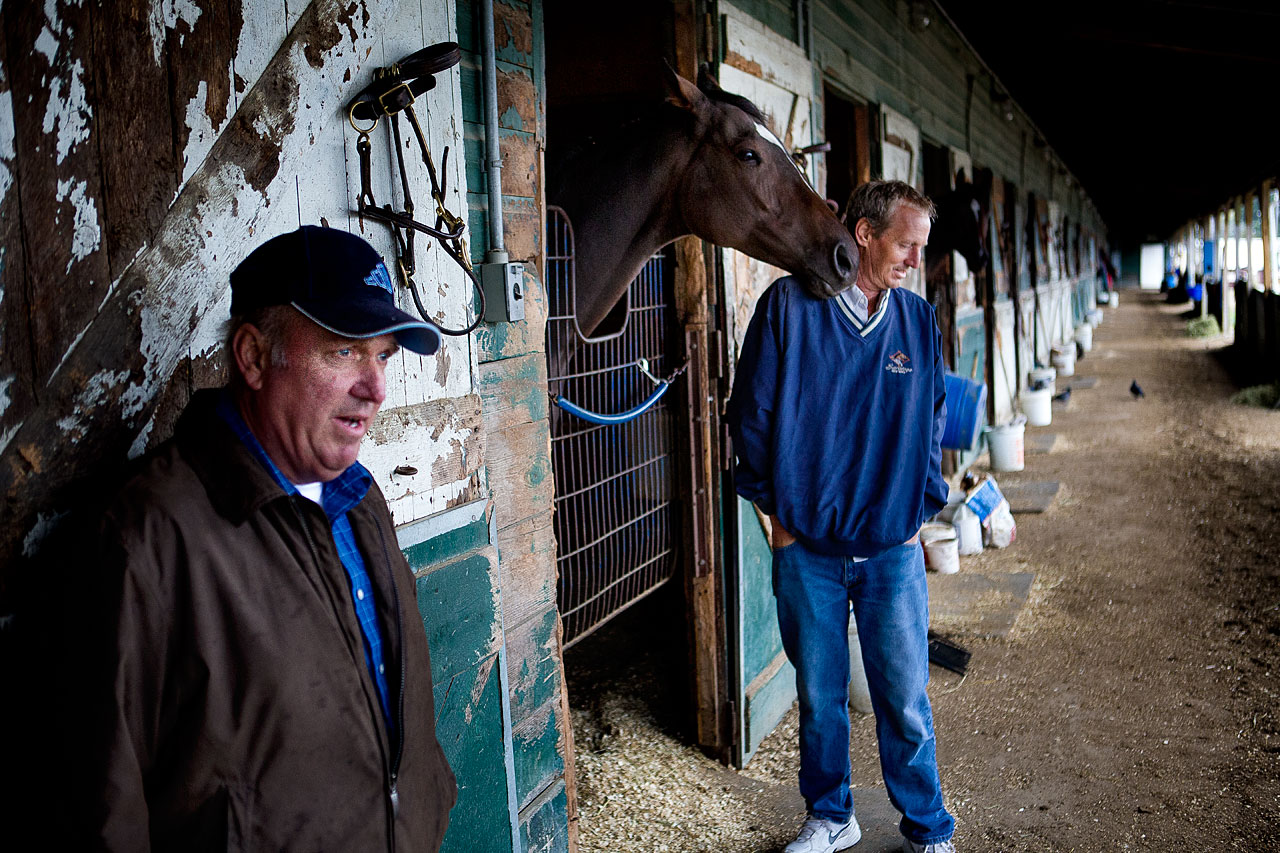Advertisement
Suffolk Downs Leaves Behind A Rich Legacy

After a long and illustrious run, one of New England's premier sporting venues is, in all likelihood, coming to an end.
Saturday is the last scheduled day of live racing at Suffolk Downs. The thoroughbred track, straddling Revere and East Boston, has been finishing out of the money for decades and recently lost the casino license sweepstakes. And though there's a bid to keep the races going in 2015, it's a safe bet that thoroughbred racing is never coming back to Suffolk Downs.
Getting the track here in the first place was a hard-fought, three-centuries-long fight, says Boston sportswriter Bob Temple.
"I go back to the Pilgrims. ... If you rode horses, especially if you gambled on them, they put you in the stocks. That's what they considered a sin," said Temple, author of "The Pilgrims Would Be Shocked: The History Of Thoroughbred Racing In New England."
It took the Great Depression to persuade Massachusetts lawmakers to lift the state ban on parimutuel betting. Suffolk Downs promised thousands of jobs when work was scarce, and hope when there was little.
Built in 1935 in just 62 days, on the mud flats of East Boston, the track was the fourth in New England — and an out-of-the-gate winner with racing fans.
It had the nation's first concrete grandstand, and Temple believes the clubhouse was the largest in the world.
"It was the most attended sport in New England," he said. "Just four tracks outdrew the Red Sox, the Bruins and the Celtics combined. (The Patriots didn't start playing until 1960.) That's how popular the sport was."
Seabiscuit, the come-from-behind horse who lifted a nation's spirits and become one of the greatest thoroughbreds of all time, made his debut at Suffolk Downs five days after the track opened. He finished fourth in the first running of the Mayflower Stakes.

War Admiral, First Fiddle and Whirlaway won big here. Bing Crosby had a stable at the track.
"Thank you for the memories, Suffolk Downs," Temple said. "I saw the greatest horses, the greatest jockeys, the greatest owners you could ever imagine. Two Triple Crown winners. Cigar came here twice and won two races." Cigar was a star. In 1996 he got a state police escort to the track. Boston declared it "Cigar Day."
But the heydays for thoroughbred racing at Suffolk Downs were the 1940s through the '70s.
"It was also the place to be seen," Temple added. "You name it, every celebrity you could think of it, from Rin Tin Tin to Hopalong Cassidy to Claudia Cardinale. On and on I could go. Everyone was there."
And it wasn't only horses that drew crowds to the track. In 1966 The Beatles made their last tour of the U.S. before breaking up. One of the Fab Four's final stops was Suffolk Downs.
Advertisement
"I was there and all you could hear was screaming," Temple said.
The Beatles weren't the only ones making an unexpected showing on the Suffolk track. Earlier that year, during the running of the Mayflower Stakes, a guy in a suit, waving a rolled-up newspaper, jumped onto the track.

Temple was there, reporting for the Boston Herald Traveler.
"As the horses were entering the stretch he ran out in front of them, directly at them, and the man is yelling, 'Today no one knows me, tomorrow everyone will know me,' " Temple said.
And they did. Track photographer Henry Carfagna captured the image of the man as horses brushed past at full gallop. His photo became world famous.
"And he sold the exclusive rights to that photo and he only got $350 for it," Temple said. "It made every newspaper literally in the world, $350 was his pay."
But by the 1980s, horse racing fans were going the way of the fedora. Even mini-skirted mutuel messengers at Suffolk Downs couldn't bring in spectators the way they used to come.
Temple summed it up in three words: "Changing consumer tastes."
In 1990 Suffolk Downs closed down for two years, and it's lost money every year since 2006.

These days the grandstand — once so grand with no place to stand — is largely empty.
In these waning days of racing, even winners have little to cheer about. But it is fitting that in a field where come-from-behind victories are always a possibility, people like horse trainer Jay Bernardini are scheming to find a way to race just a few more times next year at Suffolk.
"We got to to come up with 125 grand by Saturday," he said. "I got five guys who'll come up with $10,000 already. How about you, are you in for 10?" he asked a fellow horseman.
"Yeah, let me know, I'll find a way now," came the reply from Kevin McCarthy.
Now that's a long shot.
This segment aired on October 3, 2014.
